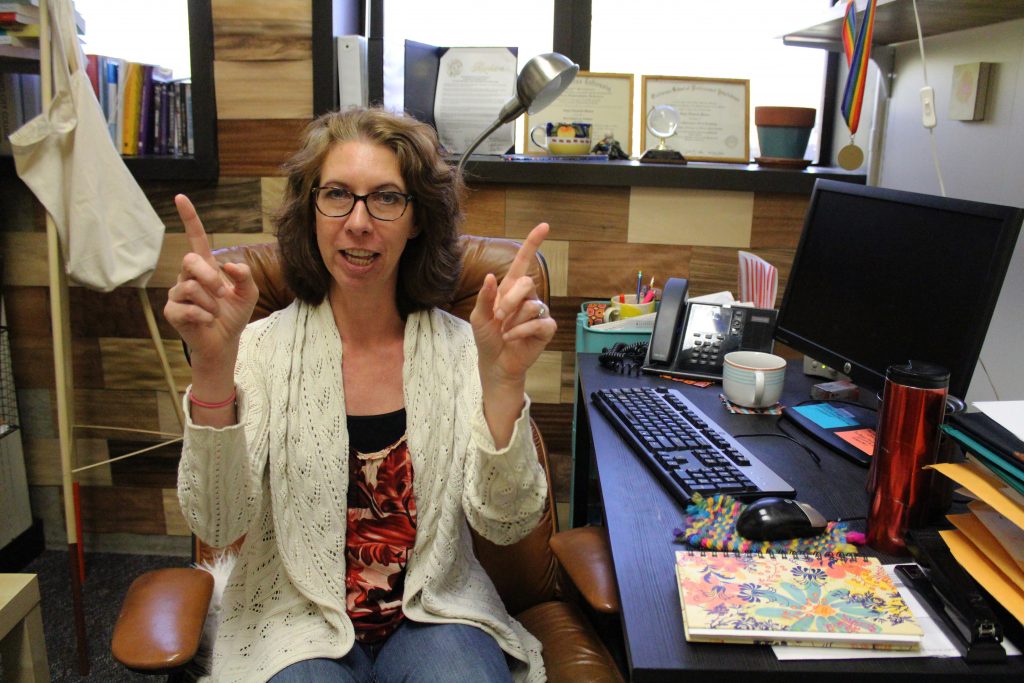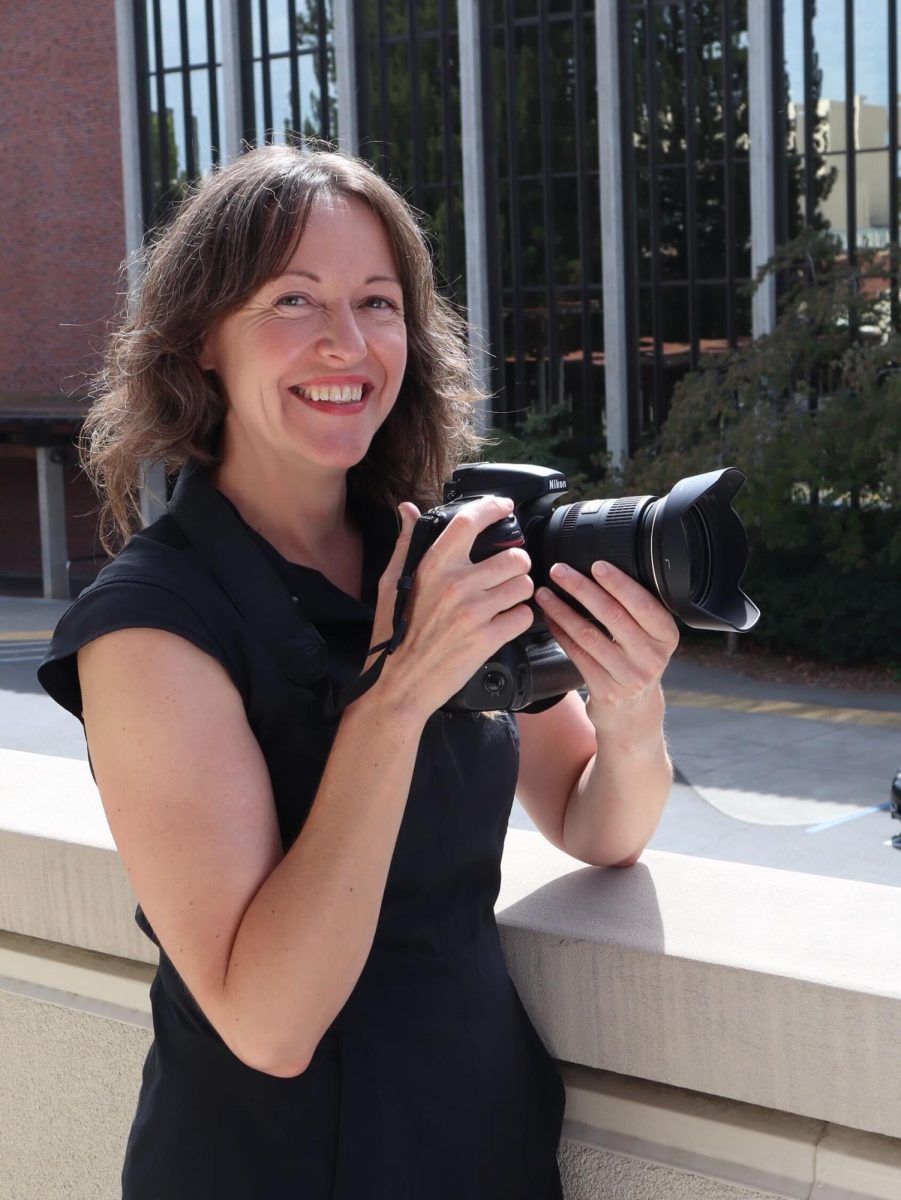Christopher Hall
Guest Writer | w1409731@apps.losrios.edu
Walking along the second floor of City College’s Rodda Hall North, you’ll feel the energy of diversity dwelling in the college community. The narrow hallways are consistently flowing with the traffic of different students from all walks of life. Some are racing from class to class, and some are waiting along the walls of a narrow pathway where a certain professor’s office resides.
Of the many offices, one stands out, decorated in liberating sentiments, with a nametag to the right that reads: Dr. Gayle Pitman. It has a poster of a rainbow-colored shield that says “We All Belong” above another poster that has stick-figured people who represent individuals from different communities, cultures and ethnicities. Among them are the LGBT, religious, and those who suffer from disabilities, all holding hands, pinned below an advertisement for a children’s book and picture of “RAD American Women from A-Z.”
When the door to this office is creaked open slightly, you will find a petite woman who stands approximately 5 feet 7 inches, poised and attentive, typing away at her computer. Pitman, 45, is a professor of psychology. She teaches multiple psychology courses that embody and symbolize unity, empowerment and social justice.
“I think that teaching in a lot of ways is an act of social activism, and I think that empowering other students to get involved in community and social justice issues is very powerful,” says Pitman.
Pitman also applies her skills to leading faculty. She is secretary for the Academic Senate, the top governing body on campus for professors. Her efforts are admired by many. City College recently honored Pitman as recipient of the Faculty Achievement Award for her contributions and hard work in building a diverse community on- and off-campus.
Pitman’s colleague, psychology professor Dr. Alan Keys, commended her on her professionalism and ability to work with and help others from different backgrounds. He says she has played a significant role in building a strong and diverse psychology department at City College.
“Her ability to listen in a non-judgmental way—in an open constructive way—and help anyone she is working with just feel comfortable with their opinion and intents, and how it really affects the students at the college, is just a small testament of what she does,” says Keys.
Pitman’s research assistant, City College student Miguel Guerrero, is collaborating with her on research about mental health issues among college students. The intent is to collect enough data to advocate for services on campus.
“She is passionate for human rights and gender identity rights,” says Guerrero. “Her passion to help others really shows and relates to the research we are doing.”
Pitman has authored two books: “Backdrop: The Politics and Personalities Behind Sexual Orientation Research” and the highly acclaimed and Stonewall Book Award-winning “This Day in June,” a children’s book that teaches tolerance.
“I think both books personalize sexual orientation more and gender identity,” says Pitman. “ I think they both widen the scope of what is acceptable.”
Pitman has taught at City College for 16 years, following a career in her field. She teaches psychology of sexual orientation and psychology of women.
“I think a lot of students don’t realize how smart they are, and they need to hear that more often,” says Pitman. “I think that every single one of our students has talents and skills or abilities, and some of which they are not aware,” she says. “One of the best things about coming to school is that it gives them the opportunity to discover and unlock some of those talents.”
Pitman moved to California from the East Coast to attend graduate school at the California School of Professional Psychology after graduating from Tufts University. She was once a community college student herself.
When Pitman is not busy teaching, researching and finding ways to generate social change, she says she enjoys being creative, hiking, spending time with her family and eating pizza, when she can get her hands on it, from her home state of New Jersey.
“One of the things I most value, and that I most strive for myself, is to be as authentic as I can,” says Pitman, “both authentic to others and authentic to myself.”





































